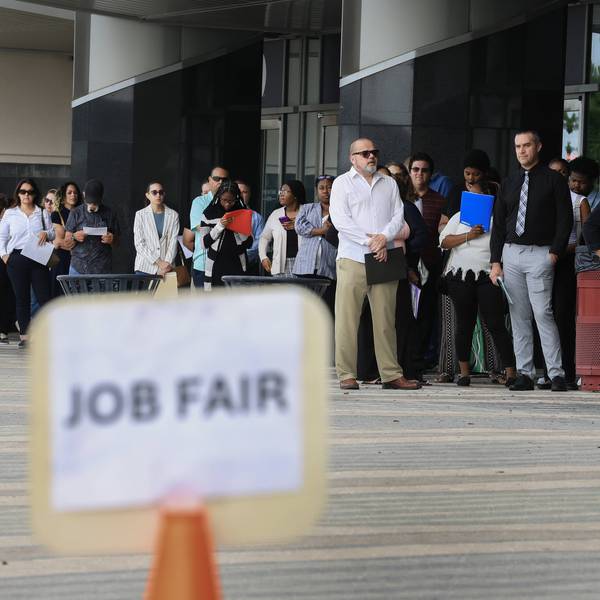Despite President Donald Trump's frequent boasting regarding the low unemployment rate, high GDP, and relatively strong stock market since he took office nearly two years ago, a new survey finds that in communities across the country, most Americans have not noticed any positive effects of such economic markers.
A poll of 1,001 people taken by Bankrate last month found that 62 percent of respondents felt their financial situations had not improved since the 2016 election.
Americans over the retirement age of 65 and those making less than $30,000 per year reported the worst financial outlooks two years into the Trump presidency. More than three-quarters of older Americans said they feel no better about their finances than they did when Trump was elected, while 78 percent of lower-income households reported the same. More than a quarter of low-earning respondents said their economic situations have worsened.
"Most Americans...live in a personal economy that has more to do with wages, job security, and the cost of housing... These are the things that hit closest home." --Robert Reich, economist
"The rising tide has certainly not lifted all boats," Mark Hamrick, an economic analyst with Bankrate, told NBC News. "There is distance between what the broad brushstroke economic data tells us and the experience of individuals in our country."
At campaign rallies in cities across the country and in his frequent social media posts, the president has touted the 3.7 percent unemployment rate and mostly-strong performance of the stock market as indicators of his success at running the country.
"Almost four million jobs created since the election, more Americans are now employed than ever, think of that!" he exclaimed at a rally in Las Vegas last month, where he also informed the crowd, "Last quarter we hit GDP 4.1, adjusted 4.2 percent."
Polls like Bankrate's support economist Robert Reich's suggestion that the president is perpetuating a "myth" of economic strength by focusing on a narrow reading of the country's economic health, ignoring how American families are actually living day-to-day.
While the Commerce Department supports Trump's claim that the GDP grew in the last quarter, Reich wrote at Newsweek last week, "very little of that growth is trickling down to average Americans. Adjusted for inflation, hourly wages aren't much higher now than they were forty years ago."
With a tax plan whose benefits went almost entirely to corporations and the wealthy and reports from working Americans that their wages have not gone up as a result of their employers' financial windfall, the president has relied on statistics to convince his supporters of a strong economy, while the daily lives of a majority of middle- and lower-income families reflect a different reality.
"Too often, discussions about 'the economy' focus on overall statistics about growth, the stock market, and unemployment," wrote Reich. "But most Americans don't live in that economy. They live in a personal economy that has more to do with wages, job security, commutes to and from work, and the costs of housing, health care, drugs, education, and home insurance."
"These are the things that hit closest home. They comprise the typical American's standard of living," he added. "Instead of an economic boom, most Americans are experiencing a bust in all these dimensions of their lives."




